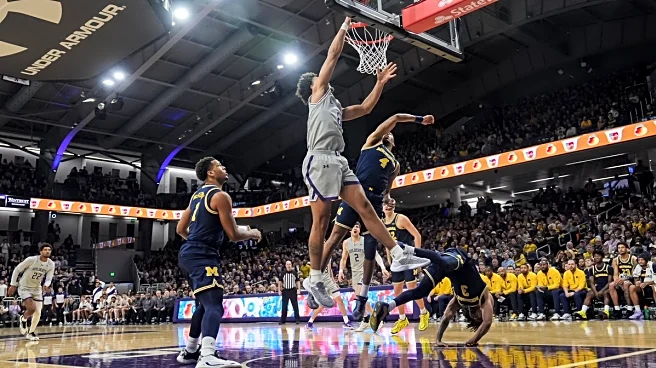Rapid Read • 8 min read
Carson Seymour, a pitcher for the San Francisco Giants, allowed one earned run on four hits during a relief appearance against the Washington Nationals. The game, which ended in a 4-2 loss for the Giants, saw Seymour pitching three innings, striking out one batter, and throwing 28 of his 44 pitches for strikes. This performance adds to Seymour's recent record, where he has given up five runs over his last eight innings. Currently, Seymour holds a 4.50 ERA, a 1.50 WHIP, and a 12:4 strikeout-to-walk ratio across 14 innings in six appearances this season.
AD
Seymour's performance is significant for the Giants as they navigate the latter part of the MLB season. His ability to manage relief innings is crucial for the team's bullpen strategy, especially as they face competitive teams like the Nationals. The Giants are in a position where every game counts towards their playoff aspirations, and consistent relief pitching can be a determining factor in their success. Seymour's ERA and WHIP indicate areas for improvement, which could impact his role in future games and the team's overall pitching strategy.
The Giants will likely continue to evaluate Seymour's performance as they approach the end of the season. His ability to adapt and improve his pitching stats will be crucial for his continued role in the bullpen. The team may consider adjustments in their pitching lineup or seek additional support if Seymour's performance does not stabilize. Upcoming games will test the Giants' bullpen depth and Seymour's capacity to contribute effectively.
Seymour's development as a relief pitcher highlights the broader challenges faced by MLB teams in managing player performance and development. The Giants' reliance on Seymour underscores the importance of nurturing young talent and balancing immediate game needs with long-term player growth. This situation reflects the dynamic nature of team management in professional sports, where strategic decisions can have lasting impacts on both individual careers and team success.
AD
More Stories You Might Enjoy














